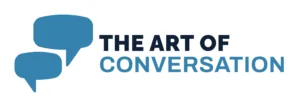 Freemasonry traces its roots back to the late 16th and early 17th centuries, emerging from the guilds of stonemasons in Europe. These craftsmen formed associations called lodges, which allowed for the sharing of trade secrets, techniques, and fellowship. As societies shifted toward centralization and formalization, these lodges evolved into something much more integral to community life. At their core, Freemasons emphasize moral integrity, personal development, and community service, which has attracted diverse members throughout history.
Freemasonry traces its roots back to the late 16th and early 17th centuries, emerging from the guilds of stonemasons in Europe. These craftsmen formed associations called lodges, which allowed for the sharing of trade secrets, techniques, and fellowship. As societies shifted toward centralization and formalization, these lodges evolved into something much more integral to community life. At their core, Freemasons emphasize moral integrity, personal development, and community service, which has attracted diverse members throughout history.
Early on, the organization was not merely concerned with the practical skills of masonry; it transformed into a fraternal order with elaborate rituals and a structured hierarchy. Masonic lodges often served as informal forums for discussing enlightenment ideas such as liberty, equality, and fraternity, which profoundly influenced political landscapes—including the foundations of modern democracies. The rise of Freemasonry coincided with significant societal changes, particularly the Age of Enlightenment, which championed reason, science, and individual rights. Iconic figures, like George Washington and Benjamin Franklin, were Freemasons, underscoring the connection between these ideals and the early development of the United States.
With its secretive rituals and private meetings, Freemasonry has long been shrouded in mystery. This air of secrecy has often fueled conspiracy theories regarding its influence over politics and society at large. Critics have posited that Freemasons leverage their networks to sway decisions, while adherents argue it is merely a fraternal bond aimed at mutual support and moral upliftment. This dichotomy continues to shape public perception, leading to a spectrum of beliefs about the organization—from reverence for its charitable initiatives to skepticism about its perceived power.
The notion of Freemasons as puppet masters, covertly pulling strings behind the scenes, highlights a recurring theme in discussions about power dynamics. Yet reality often strays from such portrayals. While it’s undeniable that many members enjoy elevated social status, the motivations and actions of Freemasons vary greatly across different contexts and cultures. Not everyone who joins is driven by an agenda or influence; for many, it’s simply a matter of community and shared ideals.
This complexity is crucial to understanding Freemasonry. The organization thrives on allegories and symbols, such as the square and compass, which serve as reminders of the moral and ethical lessons valued by its members. While some aspects remain exclusive, the foundational principles—brotherly love, relief, and truth—are openly professed and can resonate with those outside its ranks.
In essence, Freemasonry is a powerful blend of tradition, philosophy, and fraternity, embodying a rich history that has adapted over centuries. Its narrative is not solely about clandestine meetings and hidden agendas; it’s also about the journey toward personal and communal betterment—and how, even amidst secrecy, it reflects timeless values that many hold dear.
Debunking Myths Of Power And Influence
The overwhelming narratives surrounding Freemasons often hinge on the idea of secret societies controlling global events. Yet, a closer inspection negates such sweeping assertions. The perception that Freemasons wield extraordinary influence over governments and businesses derives more from speculation than fact. While it’s true that some members occupy prominent roles, this alone doesn’t equate to a coordinated power structure. More often than not, these individuals act independently, guided by their personal convictions and ethical frameworks rather than any sinister directives from their Masonic affiliations.
Throughout history, various figures have been accused of using their Masonic connections for undue advantage. However, examining these claims reveals a lack of substantial evidence. For instance, political leaders like Franklin D. Roosevelt and Winston Churchill may have been affiliated with Freemasonry, but their leadership cannot be entirely attributed to their Masonic identities. In many cases, their beliefs and policies were rooted in broader ideological commitments, not necessarily influenced by the fraternity they belonged to.
The secretive nature of Masonic rituals has led some to view the organization as elitist, breeding distrust among the general populace. The code of secrecy, intended to foster loyalty among members, often fuels suspicion. Yet while the initiations and rituals remain private, the philosophical foundations upon which Freemasonry stands promote virtues like honesty and integrity. Members frequently engage in charitable acts and community service independent of their Masonic ties, demonstrating that the organization’s capacity for positive influence extends beyond its clandestine nature.
To further debunk myths surrounding their power, it’s essential to highlight the diversity within Freemasonry. Members hail from myriad backgrounds and beliefs, each bringing their individual experiences and values to the lodge. This rich tapestry illustrates a collective that aims for improvement and personal growth rather than exerting collective control over societal functions. The idea that Freemasons form a homogenous group with a unified agenda oversimplifies the reality. Within lodges, there’s robust discourse on various topics, yet any collective action is often reflective of its members’ varied interests and not a shadowy conspiracy.
This complexity contributes to the often polarized views on Freemasonry. On one hand, there are those who celebrate the community aspect, citing a network of support and mutual aid. On the other hand, skeptics persist in viewing it through a lens of conspiracy. Breaking down these divisive views involves recognizing that Freemasonry embraces members’ individuality, encouraging them to rise as moral leaders in their communities rather than as secretive power brokers. The true legacy of Freemasons can often be found in their deeds rather than the shadowy personas that myths create.
